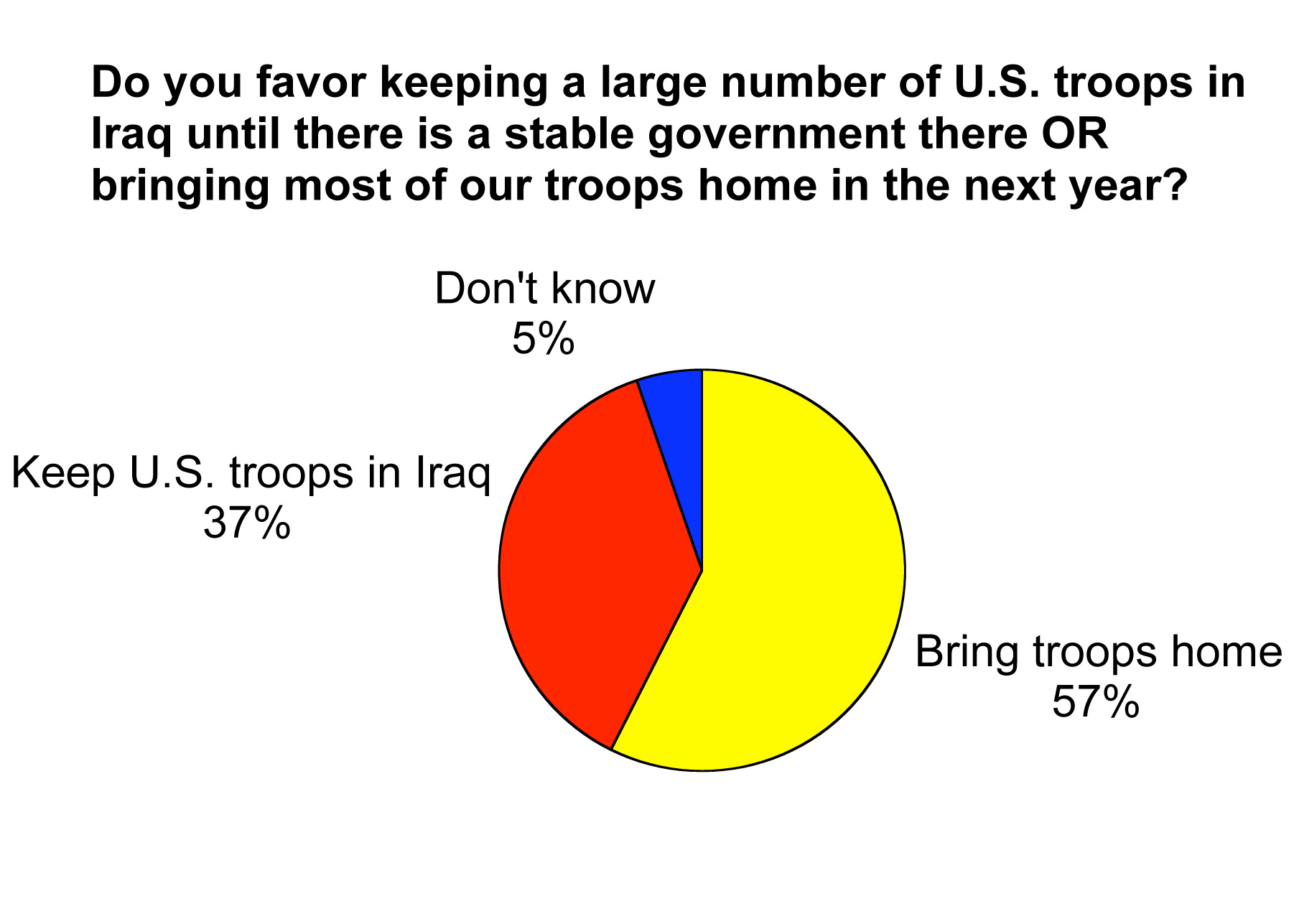
FAYETTEVILLE, Ark. — According to a new poll, Northwest Arkansans — who have tended to be conservative and vote Republican — reflect the sentiments of Americans as a whole about the war in Iraq.
In light of developments since March 2003, when U.S. troops were sent to Iraq, most Northwest Arkansans (53.1 percent) now believe that the United States made a mistake in sending troops to the country. And, only weeks before President Bush vetoed a war-spending bill that included language about deadlines for troop removal, an even greater majority of local residents (57.4 percent) favor bringing home most U.S. troops in the next year.
These and other findings were released Tuesday, May 15, as part of the 2007 Northwest Arkansas Omnibus Survey, conducted by the University of Arkansas Survey Research Center. The survey, taken between March 28 and April 12, gauged sentiments of 602 residents of Benton, Washington, Carroll and Madison counties.
“Considering the political climate of Northwest Arkansas, I was surprised by the number of local residents who favored bringing troops home and who thought the United States had made a mistake in Iraq,” said Molly Longstreth, director of the research center. “In the 2004 general election — and remember that Arkansas was a 'red’ state — Northwest Arkansas residents tended to support President Bush and presumably his policies. I think our current results show that opinions may be changing or have changed, which seems to reflect the mood of Americans as a whole.”
If voting patterns also change, the political ramifications of the above sentiments may be even more dramatic. Longstreth’s researchers broke down results based on whether respondents were likely or unlikely to vote and found that a much larger percentage (74.3 percent) of residents who were unlikely to vote favored bringing home most U.S. troops in the next year. Conversely, of those respondents who were likely to vote, 55.5 percent said they favored bringing home troops. Similarly, a greater majority of unlikely-to-vote respondents (66.4 percent) thought the United States made a mistake in sending troops to Iraq. Of those who were likely to vote, 52.8 percent thought the same.
The researchers also broke down results by county and gender. Interestingly, 54 percent of residents from Benton and Washington counties believed the United States made a mistake in sending troops to Iraq, while 70 percent of Carroll- and Madison-county residents thought the United States made a mistake. Only a slim majority of men (51.5 percent) in the four-county area thought the United States made a mistake, but almost 60 percent of women thought the same.
About 16 percent of Northwest Arkansas residents said they personally knew someone who had been killed or wounded while serving in the military in Iraq. Most of these soldiers were more likely to be friends than family members. Only 3.2 percent of the respondents said they had a family member killed or wounded in Iraq since the war began in 2003. Longstreth’s researchers found that Northwest Arkansans’ opinions on whether the United States made a mistake in sending troops to Iraq were not related to whether they knew someone who had been killed or wounded while serving in Iraq.
Finally, about 43 percent of local residents thought the invasion of Iraq strengthened the war on terrorism, while 36 percent thought the invasion weakened the war on terrorism, and 21 percent were unsure about the invasion’s impact on the war on terrorism. Local residents with the highest levels of education — those who had completed some graduate school or had a graduate or professional degree — were less likely than those with less education to think that the invasion strengthened the war on terrorism. About 58 percent of those respondents with some college or a bachelor’s degree thought the invasion had strengthened the war on terrorism, while only 37.5 percent of those with some graduate school or a graduate or professional degree thought the same.
Conducted in both English and Spanish, the Northwest Arkansas Omnibus Survey uses random-digit dialing to contact a random sample of residents. Data are collected via a sophisticated, state-of-the-art, computer-assisted telephone interviewing system. Interviewers are highly trained, and information received during the process remains confidential. Longstreth said findings are accurate within a range of plus or minus 4 percentage points.
Established in 1998, the UA Survey Research Center conducts surveys and evaluations for a variety of organizations and is dedicated to providing high-quality, nonbiased information. For more information on the center and its research, go to http://survey.uark.edu/ .
Topics
Contacts
,